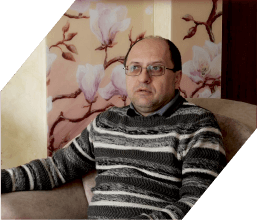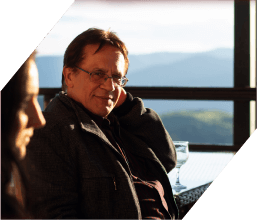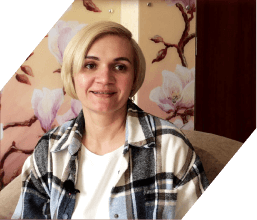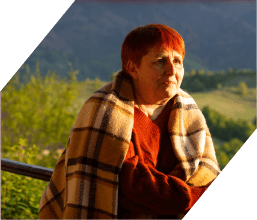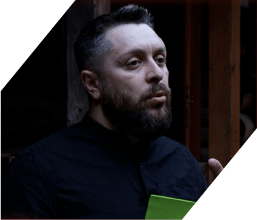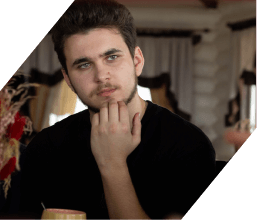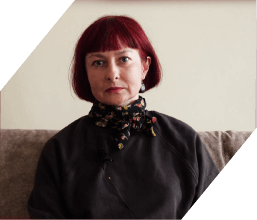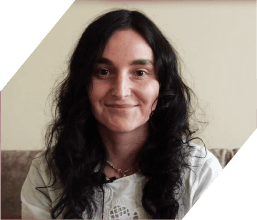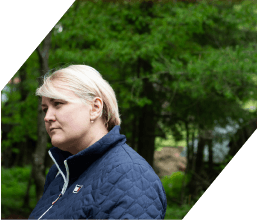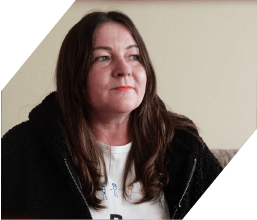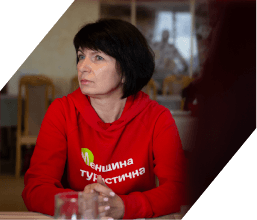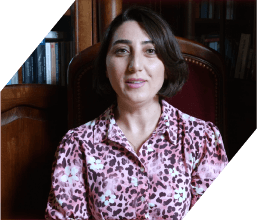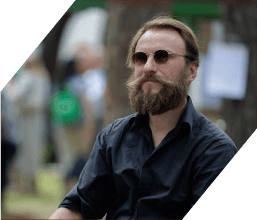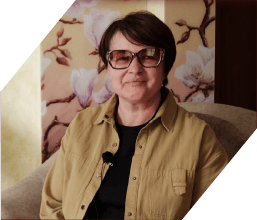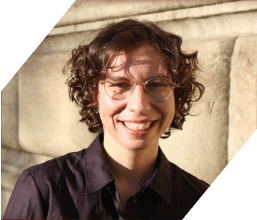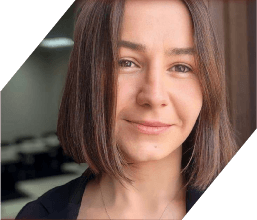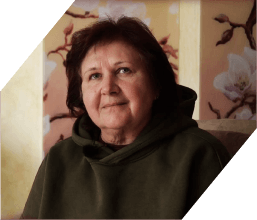
Olga Bondar Riznychenko
I was born on November 25, 1957, in Melitopol, Zaporizhzhia
region (currently occupied territory). I hold a degree in Philology from Kharkiv University and postgraduate
academic training from the Kyiv Pedagogical Institute. My scholarly work focused on a comparative analysis
of Ukrainian and Russian Futurism, under the influence of prominent scholar Hryhorii Hrabovych. Since the
late 1980s, I have actively engaged in civic and cultural activism. I was among the first to initiate public actions
in Kharkiv advocating for Ukrainian cultural revival, the reburial of Vasyl Stus, and the legalization of national
symbols. In 1988, I co-founded the Kharkiv Literary Museum, where I continue to work today. I have curated
or co-authored over three decades of exhibitions, including “Ukrainian Golgotha” (1991), the first museum
exhibition in Ukraine dedicated to repressed writers of the 1920s. Throughout the 1990s and 2000s, I remained
involved in grassroots civic initiatives, cultural preservation, and educational work, including teaching
Ukrainian studies at the Kharkiv Air Force Institute. I am a long-standing member of the Political Council of
the Congress of Ukrainian Nationalists and served as senior coordinator of St. Dmytrii Church (UGCC) for
over 20 years, integrating cultural, interfaith, and social programs into community life. I have participated in all
major civic movements of modern Ukraine: the Orange Revolution (2004), the “Christmas Together” project
(Kharkiv–Lviv), the Revolution of Dignity (2013–2014), and later local resistance to separatist movements
in Kharkiv. I organized volunteer aid for border troops and coordinated community-level support for the
Ukrainian Armed Forces in Luhansk and Donetsk regions. From 2015 to 2022, I co-led the educational initiative
“Rejoicing Together” with students of the Ukrainian Catholic University, providing monthly cultural and civic
education programs in frontline villages of Eastern Ukraine. Following the full-scale Russian invasion in
February 2022, I led evacuation efforts in Kharkiv, established humanitarian support for civilians and military
units, and launched mobile educational and cultural programs for war-affected communities in frontline and
recently de-occupied villages. In July 2022, I founded and currently lead the NGO “Volunteer Association
Dobrochynets”. Our organization delivers humanitarian and psychological support, promotes local culture,
and implements educational and artistic programs in collaboration with:
• Ukrainian Catholic University (UCU, Lviv)
• Ukrainian Educational Platform (UOP)
• BookForum
• Kharkiv Literary Museum
• Frontiere di Pace (Italy)
I am deeply committed to the idea of “Small Centers of the World” by Krzysztof Czyżewski, which prioritizes
community-based development rooted in dignity, cultural dialogue, and local identity. I believe this model
is particularly relevant for Ukraine’s postwar recovery, especially in borderland and previously neglected
territories. My experience in cultural management, civic education, community engagement, and volunteer
coordination allows me to meaningfully contribute to long-term resilience and reconciliation efforts across
diverse Ukrainian regions.
The Small Center of the World is a space of encounter — a meeting ground where people from diverse cultures, backgrounds, and perspectives find common ground for understanding. It is a home for difference, a place where otherness and belonging coexist in harmony. A vital part of this work is seeking connections with other Small Centers of the World, building strength through such a network of relationships. Olga Bondar-Riznychenko reflects on this through the lens of her work in Kharkiv, particularly her involvement with the city’s Museum of Literature.
